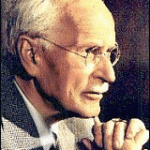This is a warning,warning! You may be unconscious. “Well no, you say, I am awake and aware.” BUT,
Here is the deal folks: living unconsciously is easy. Other unconscious people around you will not even notice. Even you will not notice and you will swear in full honesty that you’re totally conscious. Carl Jung, Swiss Psychologist, and one of the remarkable figures in the field of psychology said:
“Until you make the unconscious conscious, it will direct your life and you will call it fate.”

Let me ask you a question; how would you know if you were unconscious? It’s kind of like getting drunk, if you have ever gone drinking with friends. First you have a few drinks and there is a nice buzz, almost unnoticeable. So if someone said to you, “You’re getting drunk,” you would probably say, “No, I’m not.”
But then after some time you would probably begin to feel the effects.
Well, being unconscious, being in a state where you are really unaware of what is going on around you is like that. Someone could even say to you “wake up!” and you would say, “I am awake,” from the depths of your slumber.
A lot of people proudly defend unconsciousness. “I don’t need to stay conscious that is just too hard work.” Here is an example: When you’re watching television, there are 2 things going on that will lead you to unconsciousness. The first is the flicker rate which is designed to have you slip into a nice, rapid, and profound trance within the first few minutes or so. The second is the programming ”the content you watch.
How easy would it be to get out from under that? How easy would it be to turn off the television, and read a book? How easy would it be to ignore what you have done every day of your life for the past 35 years or more, I mean just turn off the television. What would you do then?
Maybe you could start the process of getting conscious. Stop living someone else’s dream and live your own life. Then you could begin to contemplate the kinds of questions that would get you really conscious and awake. You could begin by tackling the questions that you have denied or avoided answering.
In order to get really conscious you will need to take all your unconscious, cherished assumptions and look clearly at them and ask yourself, “Does this thinking support me? Does it allow me to become magnificent? Will the veil be pulled from my eyes? Will I be able to see the world clearly for what it is?” NLP, Time Line Therapy® techniques, and hypnosis will also help. Because it allows you to see the patterns present in your reality.
Good luck waking up!
About Carl Jung
Carl Jung was a Swiss Psychiatrist who was arguably the father of modern psychology along with Freud and Adler. He first postulated and then developed his theories about Introverts/Extroverts, Psychological Types, the Collective Unconscious and Archetypes. One of his areas of keen interest was, as is ours, the Unconscious Mind.
Many of the themes that Jung came back to over and over again in his life and writings came from his personal experience. For quite some time he thought that he had two distinct personalities living inside him: One personality was quite extroverted and the other was quite introverted. This dichotomy led Jung to focus on being whole and attaining integration.
He also became interested in symbols, and why certain symbols were present in diverse and widely separated cultures and times around the world. This led him to develop two theories of the content of the unconscious. The first was the personal unconscious of the individual. The second was the collective unconscious of the human race.
The collective unconscious has as part of its content fragments of the memory of the human race. These fragments become Archetypes. An Archetype is a symbol that is present in meaning for a broad percentage of the population. That means that there are inherent tendencies to evaluate and then represent certain events in a certain way. Archetypes can be simple such as father, mother, daughter, king, queen, etc., or they can be quite complex as in religious systems.
Jung’s work had a great influence on psychology, as well as esoteric areas of study such as Astrology and also religion. Making the unconscious conscious is one of our goals at each training we teach and each technique we teach is for waking up the conscious and the unconscious mind. NLP really helps.
